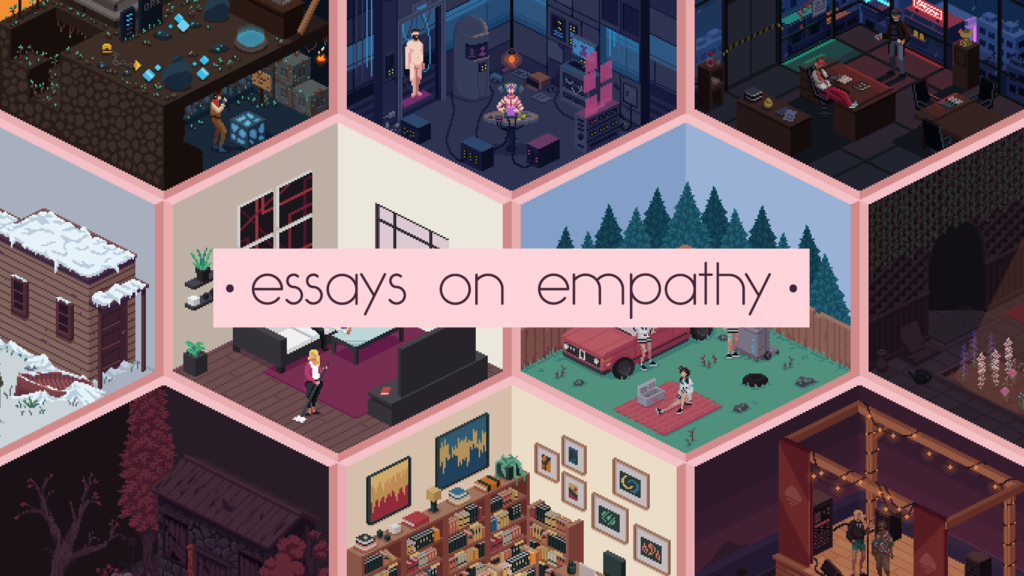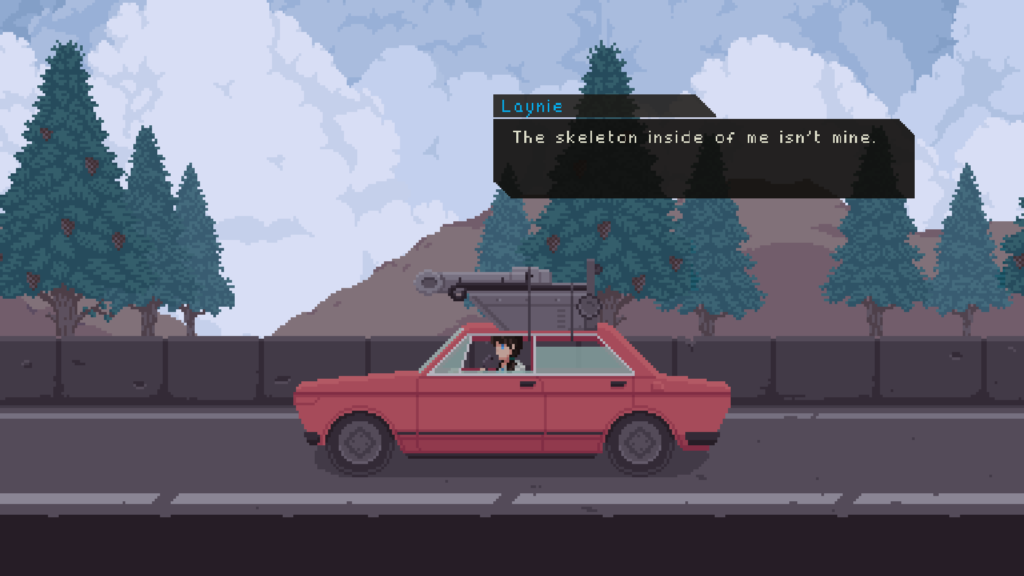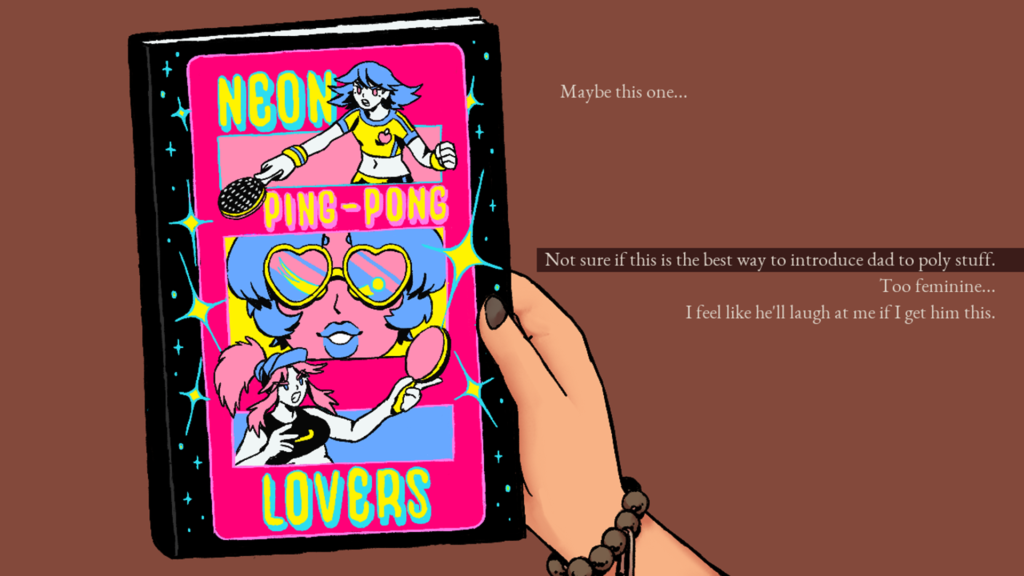
Essays in Empathy is an intrinsically queer anthology of experimental games
Essays on Empathy is one of the most unique releases of the year – an anthology of short games from Deconstructeam, the Spanish developer perhaps best known for The Red Strings Club.
The cyberpunk adventure game is a firm favourite here at Gayming Magazine, where we’ve explored its complex representation of trans characters, and how it accurately taps into dystopian elements of our own lived reality. Essays on Empathy is different though – it’s a collection of micro-games, often short and experimental, less a firm narrative and more an assemblage of ideas still being defined.
It’s also an undeniably queer collection of experiences, even if few of the games included directly deal with LGBTQ+ identities or experiences. Instead, it’s a dream-like mix of concepts – some narrative devices, others gameplay mechanics – yet still often exploring powerful and important themes.

There are ten games in the Essays on Empathy anthology, spanning various genres, styles, and structures. Some, such as 11:45 A Vivid Life, above, are highly experimental, where even the genre of the story changes depending on your choices. Described as “a short, weird tale about a girl who discovers her skeleton isn’t hers, steals an x-ray machine, and flees to the countryside to investigate her own body”, it’s already off to a strange start, but playing it unlocks feelings of alienation, unbelonging, of not fitting in even in your own skin. It’s not explicitly queer, but it will be instantly familiar territory to many LGBTQ+ players, regardless of the path you take in the game.
Others, such as Zen and the Art of Transhumanism – “a cyberpunk pottery game about improving the human race through technology” – is something of a history lesson on the developers’ roots. Originally made for the Ludum Dare game jam in 2016, Deconstructeam describes it as the foundation stone of what became their narrative style, influencing later games like The Red Strings Club.
Playing it Zen now, it still resonates. It asks questions of what the self is, and how we might be tempted to modify, change, or “improve” ourselves to gain greater acceptance – and why. It’s surprisingly weighty material, even five years on.

Not every game included is so direct in its themes and questions, though. Some, such as The Bookshelf Limbo – made as a birthday present for a friend of the dev team – is more introspectively queer. It offers the simplest of experiences as you browse a bookshelf, looking for a comic for your father’s birthday. Gameplay, such as it is, involves merely reflecting on the various books, investigating quotes on the back, and (foolishly) reading online reviews.
Some of the books are explicitly queer, describing characters who are LGBTQ+ or polyamorous, and it’s through the internal reflections of the shopper that you pick up on a frayed parent-child relationship. It’s one not necessarily damaged because of queer identities, but as the buyer explores their perceptions of their father’s personality and expectations – Is this book too feminine? Is that one too intellectual? Will this one make him think I’m still a child? – it builds an all-too-relatable emotional toll, one weighed down by a quiet sadness.

It’s also worth highlighting Deconstructeam’s beautiful presentation of this collection. Each game has its own dedicated entry, giving some background on the title and providing trigger warnings for any controversial content. The whole package has a premium, archival feel to it too, which is particularly impressive given the scrappy, often rushed creation many of the titles underwent. There are production galleries and new documentary video discussions with the developers, discussing how each entry came to be and the feelings they were exploring when they made it, and it’s all accompanied by two hours of chill, lo-fi music from Deconstructeam’s composer Paula Ruiz, aka fingerspit.
Just as Essays on Empathy isn’t a conventional game release, this isn’t – cannot be – a conventional game review. Each player’s emotional response or reaction will vary greatly, and do so to each game included here. What’s remarkable though is just how emotive the anthology is, how much pause for thought it can create, often in the most unexpected ways. Queer players will undoubtedly find deeper connections to the collection though – even when there isn’t an avowedly LGBTQ+ character on screen, these quirky, provocative experiments almost universally touch on shared thoughts, experiences, and feelings we will all recognise.





